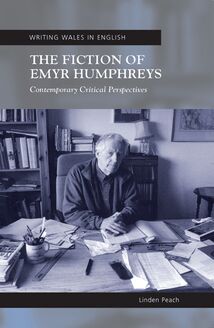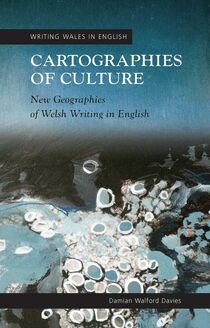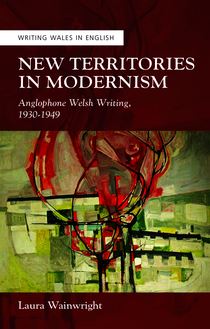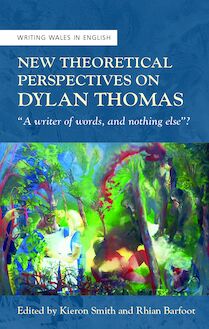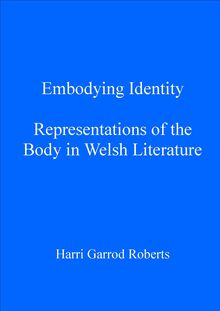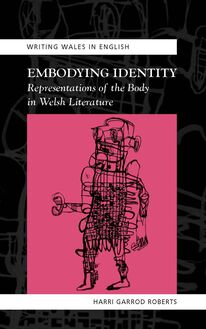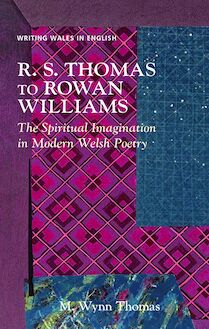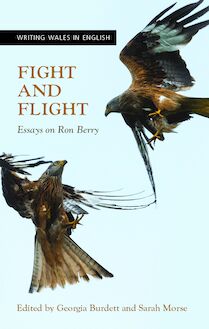-
 Univers
Univers
-
 Ebooks
Ebooks
-
 Livres audio
Livres audio
-
 Presse
Presse
-
 Podcasts
Podcasts
-
 BD
BD
-
 Documents
Documents
-
- Cours
- Révisions
- Ressources pédagogiques
- Sciences de l’éducation
- Manuels scolaires
- Langues
- Travaux de classe
- Annales de BEP
- Etudes supérieures
- Maternelle et primaire
- Fiches de lecture
- Orientation scolaire
- Méthodologie
- Corrigés de devoir
- Annales d’examens et concours
- Annales du bac
- Annales du brevet
- Rapports de stage
La lecture à portée de main
Vous pourrez modifier la taille du texte de cet ouvrage
Découvre YouScribe en t'inscrivant gratuitement
Je m'inscrisDécouvre YouScribe en t'inscrivant gratuitement
Je m'inscrisEn savoir plus
Vous pourrez modifier la taille du texte de cet ouvrage
En savoir plus

Description
Sujets
Informations
| Publié par | University of Wales Press |
| Date de parution | 15 septembre 2020 |
| Nombre de lectures | 0 |
| EAN13 | 9781786837233 |
| Langue | English |
Informations légales : prix de location à la page 0,0650€. Cette information est donnée uniquement à titre indicatif conformément à la législation en vigueur.
Extrait
Eighteenth-Century Writing from Wales
Writing Wales in English
CREW series of Critical and Scholarly Studies General Editor: Professor M. Wynn Thomas ( CREW , Swansea University )
This CREW series is dedicated to Emyr Humphreys, a major figure in the literary culture of modern Wales, a founding patron of the Centre for Research into the English Literature and Language of Wales , and, along with Gillian Clarke and Seamus Heaney, one of CREW’s Honorary Associates. Grateful thanks are extended to Richard Dynevor for making this series possible.
Other titles in the series
Stephen Knight, A Hundred Years of Fiction (978-0-7083-1846-1)
Barbara Prys-Williams, Twentieth-Century Autobiography (978-0-7083-1891-1)
Kirsti Bohata, Postcolonialism Revisited (978-0-7083-1892-8)
Christopher Wigginton, Modernism from the Margins (978-0-7083-1927-7)
Linden Peach, Contemporary Irish and Welsh Women’s Fiction (978-0-7083-1998-7)
Eighteenth-Century Writing from Wales
Bards and Britons
Writing Wales in English
SARAH PRESCOTT
© Sarah Prescott, 2008
All rights reserved. No part of this book may be reproduced, stored in a retrieval system, or transmitted, in any form or by any means, electronic, mechanical, photocopying, recording or otherwise, without clearance from the University of Wales Press, University Registry, King Edward VII Avenue, Cathays Park, Cardiff, CF10 3NS.
www.uwp.co.uk
British Library Cataloguing-in-Publication Data
A catalogue record for this book is available from the British Library.
ISBN: 978-0-70832-053-2
eISBN: 978-1-78683-723-3
The right of Sarah Prescott to be identified as author of this work has been asserted by her in accordance with sections 77 and 78 of the Copyright, Designs and Patents Acts 1988
Published with the financial assistance of the Welsh Books Council
The publisher has no responsibility for the persistence or accuracy of URLs for any external or third-party internet websites referred to in this book, and does not guarantee that any content on such websites is, or will remain, accurate or appropriate.
Cover image: National Library of Wales
I IDLOES, BETSAN A MARI ROBERTS
gyda llawer o gariad
C ONTENTS
GENERAL EDITOR’S PREFACE
ACKNOWLEDGEMENTS
Introduction
1 ‘What Foes more dang’rous than too strong Allies?’: The Society of Ancient Britons and Anglo-Welsh Relations in Eighteenth-Century London
2 The Cambrian Muse: Gender, Welsh Identity and Hanoverian Loyalty in the Poems of Jane Brereton (1685–1740)
3 ‘Gray’s Pale Spectre’: Evan Evans, Translation and the Rise of Welsh Bardic Nationalism
4 ‘Cambria Triumphans’: Patriotic Poems of Eighteenth-Century Wales
5 Narrating the Nation: Wales in Eighteenth-Century Fiction
Notes
Bibliography
G ENERAL E DITOR ’ S P REFACE
The aim of this series is to produce a body of scholarly and critical work that reflects the richness and variety of the English-language literature of modern Wales. Drawing upon the expertise both of established specialists and of younger scholars, it will seek to take advantage of the concepts, models and discourses current in the best contemporary studies to promote a better understanding of the literature’s significance, viewed not only as an expression of Welsh culture but also as an instance of modern literatures in English world-wide. In addition, it will seek to make available the scholarly materials (such as bibliographies) necessary for this kind of advanced, informed study.
M. Wynn Thomas,
Director, CREW ( Centre for Research into the English Language and Literature of Wales )
Swansea University
A CKNOWLEDGEMENTS
Material from chapter 1 has appeared as ‘“What Foes more dang’rous than too strong Allies?: Anglo-Welsh relations in eighteenth-century London’, Huntington Library Quarterly , 69, 4 (2006), 535–54; from chapter 2 as ‘The Cambrian Muse: Welsh identity and Hanoverian loyalty in the poems of Jane Brereton (1685–1740)’, Eighteenth-Century Studies , 38, 4 (2005), 587–603; and from chapter 3 as ‘“Gray’s pale spectre”: Evan Evans, Thomas Gray, and the rise of Welsh bardic nationalism’, Modern Philology , 104, 1 (2006), 72–95. I am grateful to the editors and readers of these journals for their extremely useful comments on these essays. The Department of English, Aberystwyth University, granted me study leave to work on the project, and the AHRC granted me a Research Leave Scheme award which enabled me to bring the book to completion. A Sir David Hughes Parry Award, Aberystwyth University, provided me with further financial support for researching material in chapters 1 and 3.
I would like to thank various colleagues and friends at Aberystwyth and elsewhere for their advice and support in the course of writing this book, especially the following: Jane Aaron, Peter Barry, Mary-Ann Constantine, Damian Walford Davies, Louise Marshall, Francesca Rhydderch, David E. Shuttleton, Jane Spencer, Diane Watt, Cathryn Charnell-White and David Womersley. I also thank Geraint H. Jenkins and Mary Burdett-Jones for sharing their knowledge and expertise. Sarah Lewis and M. Wynn Thomas have been very helpful in the final stages of the book’s completion. Special thanks as ever to Claire Jowitt.
I owe a special debt of gratitude to Betty and Cliff Moon, Gwenda and Gareth Morgan, and to my family, to whom this book is dedicated.
I NTRODUCTION
In a letter to Evan Evans in July 1761 concerning Evans’s ‘authentication’ of the tradition of Edward I’s supposed massacre of the Welsh bards, Thomas Percy declares to the Welshman: ‘Your nation and ours are now happily consolidated in one firm indissoluble mass, and it is of very little importance, whether Llewelyn or Edward had the advantage in such a particular encounter.’ 1 Through emphasising the positive outcome of united Britishness, Percy effectively empties Edward’s conquest of Wales and the act of bardicide of any political import, as Wales is seamlessly absorbed into England. Recent scholarship on the literary construction of British national identity in the eighteenth century has also underplayed the role of Wales. 2 This critical neglect is partly due to the general sense expressed by Percy that, in contrast to Scotland and Ireland, Wales was not only dutifully acquiescent in the Anglicisation processes of the eighteenth century, but actively rejoiced in their happy union. In keeping with Welsh enthusiasm for the Tudor Union, it is assumed that Wales was eager to be part of a post-1707 political consensus which emphasised Protestant solidarity and foregrounded loyal patriotism to the British nation and its monarchy. This book aims to complicate the view that the Welsh were passively assimilated into an Anglo-British consensus in the eighteenth century. Although many eighteenth-century Welsh writers did express pro-British loyalty to the Protestant and Hanoverian succession, for most Welsh writers and readers of the period the idea that Edward’s triumph and the conquest of Wales were devoid of contemporary relevance or empty of political and cultural significance was unthinkable.
In a rather belated response to J. G. A. Pocock’s call in 1975 for an ‘archipelagic’ approach to British history, the last ten years have produced a wealth of scholarship – initially historical but increasingly literary – on the question of British national identity. 3 Archipelagic approaches to literary history can, broadly, work in two ways. On the one hand, scholars emphasise that British history is not, in fact, the history of England, but of four nations. The focus from this perspective centres on British inclusiveness and the potential for reciprocity between Britain’s constituent parts. On the other hand, archipelagic criticism can uncover a more conflicted sense of Britishness, with the additional sense that the ‘Celtic’ components of Great Britain are engaged in active resistance to Anglo-British incorporation, preferring instead to highlight cultural, literary and national difference. However, although a substantial body of literary scholarship exists on early modern British identities and archipelagic approaches to literary history, the role of Wales in these debates is rarely touched on despite the urgency of some of the calls for ‘inclusiveness’. This neglect is mostly due to the lack of knowledge of a body of texts and scholarship in the Welsh language. However, literary scholars in particular also seem to be unaware of a pre-1900 anglophone tradition in Wales. A notable exception to this is the work of Philip Schwyzer, whose Literature, Nationalism and Memory in Early Modern England and Wales (2004) makes Wales and Welsh writing central to his thesis that ‘national consciousness in Tudor England was largely “British” rather than narrowly “English” in its content and character’. 4 This study aims, then, to add to our understanding of the writing of archipelagic literary history through attention to the piece of the jigsaw usually missing in this context: eighteenth-century Wales. Although work in this area has been mainly based in early modern studies, the eighteenth century is especially pertinent in this respect since, as Linda Colley has influentially observed in Britons: Forging the Nation, 1707–1837 , the Act of Union between England and Scotland in 1707 marked the invention of Great Britain as ‘a would-be nation’. 5 The years following Colley’s 1992 study have witnessed a surge of critical interest in eighteenth-century conceptions of national identity. However, as might be expected given the nature of the 1707 Union, attention paid to eighteenth-century negotiations of Britishness has mainly concerned the often turbulent relationship between England and Scotland. 6 In contrast, the role played by Wales and English-language Welsh writers, especially from the earlier years of the century, has been neglected by literary scholars. Wales and England had been formally united by the Tudor legislation of 1536–43, and thus can be said to h
-
 Univers
Univers
-
 Ebooks
Ebooks
-
 Livres audio
Livres audio
-
 Presse
Presse
-
 Podcasts
Podcasts
-
 BD
BD
-
 Documents
Documents
-
Jeunesse
-
Littérature
-
Ressources professionnelles
-
Santé et bien-être
-
Savoirs
-
Education
-
Loisirs et hobbies
-
Art, musique et cinéma
-
Actualité et débat de société
-
Jeunesse
-
Littérature
-
Ressources professionnelles
-
Santé et bien-être
-
Savoirs
-
Education
-
Loisirs et hobbies
-
Art, musique et cinéma
-
Actualité et débat de société
-
Actualités
-
Lifestyle
-
Presse jeunesse
-
Presse professionnelle
-
Pratique
-
Presse sportive
-
Presse internationale
-
Culture & Médias
-
Action et Aventures
-
Science-fiction et Fantasy
-
Société
-
Jeunesse
-
Littérature
-
Ressources professionnelles
-
Santé et bien-être
-
Savoirs
-
Education
-
Loisirs et hobbies
-
Art, musique et cinéma
-
Actualité et débat de société
- Cours
- Révisions
- Ressources pédagogiques
- Sciences de l’éducation
- Manuels scolaires
- Langues
- Travaux de classe
- Annales de BEP
- Etudes supérieures
- Maternelle et primaire
- Fiches de lecture
- Orientation scolaire
- Méthodologie
- Corrigés de devoir
- Annales d’examens et concours
- Annales du bac
- Annales du brevet
- Rapports de stage
